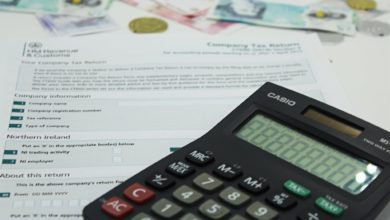
The rapid rise of COVID-19 cases forced a number of local governments around the globe to implement stay-at-home ordinances to some cities and countries. During this time, people are encouraged to work from home as a way to cope with the new normal.
For auditors, working remotely is a new concept. When they audit, they provide an objective examination of the financial statements of a business. Doing this process independently and at home may impose questions on accuracy and assessment.
This article tackles what you should keep in mind when you’re conducting audit work away from your client site.
The Work Process
Have the right technology on hand
If your team is working from home, make sure you have the capacity to work remotely. You need to ensure that all members of the team have the materials, devices, and software needed. They must be well-trained to use these tools so that processes run smoothly and efficiently.
Ensure that your client has access to all relevant files
Most clients have paper books or records. When turning digital, allow them to access and review their files for transparency.
Devise a strategy on how to authenticate documents
The new setup will leave your client with no choice but to send scanned copies of their important documents. As the auditor, it is your responsibility to confirm the document’s authenticity. Calling the third party directly, for example, can help you verify the document’s validity.
The Challenge of the Set-Up
Undoubtedly, remote work has its limitations. This includes the possibility of not obtaining confirmation for evidence presented, which is a key source to any form of data gathering. Another challenge is how alternative procedures you come up with may seem insufficient for some clients. Some design and implementation of the client’s relevant controls may also be impossible to personally evaluate during this time.
The Assessment of Going Concerns
The number one question for most businesses during this crisis is if they have the capacity to continue during and even after the pandemic. When assessing the financial status of a business, here’s a suggestion on how to handle it:
- Identify if there are particular events or situations that may cause substantial doubts about the business’s ability to continue. Substantial doubt is the probability that a business might not continue based on the management’s judgment. The COVID-19 pandemic’s impact on the economy can be an example cause of this doubt.
- Ask the management’s feedback on the same topic. Upon receiving their evaluation, assess its completeness and accuracy. Their files should include a management plan moving forward. The management is also required to disclose all the risks and uncertainties that can affect financial statements in the near term.
- When substantial doubt is present, there is a need to disclose the business’ financial statements.
- Assess whether the management plan will help alleviate the substantial doubt, and counter check the result with the audit report.
The Next Steps
Issue an unmodified opinion if the management plan has the capability to alleviate substantial doubt.
Issue an emphasis-of-matter paragraph if the accounting basis for going concern is fitting, and yet the substantial doubt still remains.
Issuing an adverse opinion as the going concern basis is not appropriate.
Emphasis of Matter: When to Issue One
The auditors should exercise their professional judgment and consider the circumstances of their client when assessing the next steps to the going concern.
You can still conclude that an emphasis of matter paragraph is needed even if there is no substantial doubt present. When an important event or catastrophe, like COVID-19, has been disclosed in the financial statements, you need to draw the management’s attention to the situation.
The Subsequent Event
Audits made for the year of 2019 are all COVID-19 related. Subsequent events are most likely categorised under the Type II event or events that serve as evidence that conditions, such as the decline in the fair value of the investment, exist after the date of the financial statements.
For audits under 2020, they will be categorised under Type I or the events where evidence of conditions are observed on the date of the financial statement. Disclosure of the COVID-19 situation is required to appear on financial statements.
Conclusion
COVID-19 has made 2020 a challenging year. It has affected the financial status of businesses and the workflow of most people, including the auditors. The challenge of the pandemic extends to how auditors can give a fair assessment behind the limitations of a work from home setup.
For more audit industry news and tips in the UK, tune in to our site at Accountancy Today. Subscribe to our newsletter to get the exclusive and latest news and updates.








